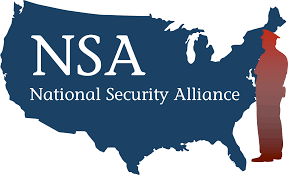
Understanding Legal Responsibilities and Limits as a Security Guard
Randi Sherman
5-minute read
Security guards carry a lot of responsibility. Their job is to protect their employer’s property and those who frequent it. However, though they are first responders in every sense, there are legal limitations regarding what they can and cannot do on the job.
Understanding the legal boundaries and responsibilities of the job helps guards perform their duties effectively while avoiding legal complications for themselves and their employers.
Today, we’ll look at the role through a legal lens, outlining areas of concern and providing tips to ensure safety and compliance.
The Legal Role of a Security Guard
Security guards are private individuals with limited legal authority. Unlike police officers, they cannot serve warrants, make arrests, or search private property other than the ones they are hired to protect.
While security guards are trained enforcement professionals, police officers undergo much more rigorous training and certification and are responsible for ensuring public safety in much broader terms.
Guards, on the other hand, are considered agents of the owner, meaning they are entrusted to protect their employer’s property, people, and best interests. As such, they have no jurisdiction outside that scope, but within those boundaries, they have certain powers that law enforcement does not have. For example, a guard can question suspicious individuals on private property without probable cause, whereas a police officer cannot.
While guards must always adhere to the letter of the law, they must also follow company policies. Failure to do so may result in legal action against the company or the guard.
Key Legal Responsibilities of Security Guards
When on duty, guards have a duty of care, meaning they are obliged to protect people and property while on the clock. Guards often are first on the scene and a critical source of information for police officers when they arrive, providing observations and reporting on criminal activity without taking action.
Often, guard presence alone can be enough to deter a crime. Verbal commands and de-escalation tactics can resolve conflict without the use of force. Should physical restraint be required, they must use “empty-handed” techniques, like escorting people away from the property, restraint holds, or joint locks only when necessary.
Use of force can only be legally applied by guards when acting in self-defense or defense of others. In doing so, they may physically restrain or detain offenders until police arrive and can also use non-lethal force.
Non-lethal force may include pepper spray, tasers, and batons. The use of lethal force is closely regulated at the state and federal levels and must only be applied when there is an imminent threat of death to the guard or others. Understanding the jurisdictional laws is essential, but guards must also adhere to employer policies.
Legal Pitfalls to Avoid
Without adequate training, it’s easy for guards to cross the line between lawful and unlawful action. States have varying requirements for training and certification, and some have none. Regardless of training or lack thereof, guards must abide by the law or risk becoming accused of a crime.
Here are a few of the legal pitfalls that all guards must understand. Training and certification can help guards avoid repercussions and keep them on the right side of the law.
- False Imprisonment. Guards must not detain someone without cause or without following proper legal procedures.
- Excessive Force. Guards must only use as much force as necessary in self-defense or to restrain someone.
- Discrimination. Guards must not discriminate based on race, gender, religion, or other protected characteristics.
- Unlawful Searches or Seizures. Guards cannot conduct illegal searches or risk violating an individual’s rights.
- Intervening in Disputes. Guards can only intervene when it directly threatens the people or property they are employed to protect.
- Privacy Concerns. Guards must respect the privacy rights of individuals regarding surveillance, recording conversations, etc.
Compliance with Local Laws and Regulations
Guards must understand how local, state, and federal laws affect security practices. Examples include regulations covering the use of firearms, trespassing, detaining people, and legal limitations when protecting private property.
As these regulations vary significantly between states, it’s recommended that guards undergo training and become well-versed with best practices and industry standards established by organizations like the National Association of Security Companies (NASC).
Many states require guards to undergo continuing education and training to ensure compliance with existing and emerging laws and regulations. Today, accessing the appropriate training through self-paced online courses like those offered through Defencify is easy.
The Importance of Documentation
The importance of documentation can’t be understated. Accurate and thorough documentation of incidents, arrests, or interactions can protect guards and their employers from legal claims as they substantiate accounts and provide critical backup should the case go to court.
Documentation can include written accounts, video footage (from CCTV, bodycams, or footage shot on a smartphone), and audio evidence, such as recordings of conversations. In the absence of audio and video, guards must sometimes rely on written documentation. It’s essential to fill out written reports immediately or take detailed notes, so vital details are not forgotten.
Final Thoughts
Security guard authority is governed by a multitude of legal frameworks. Because each state has unique laws, guards must ensure they understand the limits of their jurisdiction. Crossing legal lines may put them or their employer at risk of legal action and could result in job loss and compromise a guard’s ability to obtain work in the future.Even when specific training and certification are not mandated, guards can protect themselves and raise their value to potential employers by accessing training and obtaining certifications in de-escalation and verbal tactics and learning the general limits of their authority.
Security companies would do well to provide ongoing legal education and training for their personnel. An educated workforce results in fewer legal challenges, safer properties, and fortified public trust in the brand.
By understanding and respecting legal boundaries, security guards can perform their roles effectively and confidently, ensuring safety while minimizing legal risks.
Explore Defencify Academy’s three-tier training system and see how to take your guard service from good to extraordinary.






